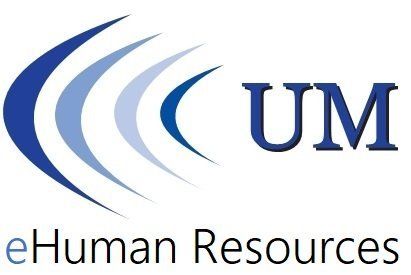-

education Human Resources
Ob für Universitäten, Hochschulen, private Akademien oder für Impulsvorträge, wir lehren auf hohem fachlichen Niveau und transferieren Wissen und Werte in die Unternehmenswelt und in unsere nächsten Generationen. Neben klassischen Präsenzveranstaltungen gehören auch modernste Technologien des eLearnings zu unserem Alltag.
Lehre erleben -

exercise Human Resources
Professionelles HR-Management ist noch niemandem in die Wiege gelegt worden! Wir schulen Top-Management, Führungskräfte und Mitarbeiter/innen in Fach- und Personalabteilungen im Aufbau und Umgang von Personalrisikoinstrumenten. Egal ob HR-Prozesse, Arbeitssuchtrisken oder demografischer Wandel - es ist oftmals nur eine Frage der richtigen Qualifikation.
Trainings sehen -

evolution Human Resources
Wir begleiten Sie auf Ihrem Weg zu einem professionellen HR Risk Management und entwickeln gemeinsam mit Ihnen zielgerichtete HR Aktionen und Instrumente, die Ihrem Unternehmen in Zukunft den Rücken freihalten!
Beratungsansatz kennenlernen -

Arbeitssucht
Das Unternehmensrisiko Arbeitssucht ist in der Betriebs- und Personalwirtschaft ein unterschätztes Risiko, welches sich zu einer existenziellen Gefährdung eines Betriebes entwickeln kann. Wir zeigen Identifizierungsmöglichkeiten auf und geben pragmatische Handlungsempfehlungen. Das Phänomen Arbeitssucht wird somit im betrieblichen Alltag fassbar.
Informieren
kopaed
kopaed Verlag München
The increasing social perception of work addiction over the past ten years has been a positive development for psychology. Work addiction may no longer be taboo, but to fully understand it, we must begin to look beyond the question of psychological impact and consider how work addiction affects entrepreneurial everyday life.
Workaholism, as a serious problem for companies, remains largely hidden. Companies often neglect the role that working conditions and executive behaviour might contribute to the development of work addiction.
Until recently, work addiction research has maintained an emphasis on psychological aspects. In our empirical study, the first of its kind in German-speaking countries, we asked workaholics about their addiction and their effects on companies. We thus chose not to view workaholism from psychological or a health perspective, but from a business and economics perspective.
Businesses need to accept that there are workaholics in their company. Without action, there is a high probability that they already carry significant economic and human resources risks. The study has shown for example, that academically educated employees tend to have a higher risk of becoming work addicted, but they didn’t stand out by increased absences. This makes it difficult to identify them. As a result, businesses must focus more on typical work-addicted behaviours instead of absences quotes. This is a new challenge for managers and human resources departments.
Executives also need to be aware that they play a key role in creating or promoting workaholism. They shape the operational framework of their enterprise significantly and influence their employees directly through their leadership.
People underestimate the damage work addiction can cause because only the final stages are visible. Even in the initial stages of addiction, the effects begin to show in the form of delays in work, unfinished tasks or increased time delays. Mistakes and wrong decisions begin to accumulate. As a result, significant economic damages can occur over months or even years, until the addiction cannot be denied anymore, and an employee experiences a ‘total failure’ such as burn-out.
Ultimately, not only the workaholics themselves, but also companies have to pay a high price. Our research shows that denying workaholism as the cause of operational problems is a gross negligence. The existence of companies can be jeopardized and therefore it requires active management actions. The economic interests of companies and help for sick persons are no longer mutually exclusive. The entrepreneurial intent must be to recognize the issue of workaholism as a disease, to avert operational damage from the company and to address the problems of workaholism actively.
| The business risk that workaholism presents is an underestimated risk in companies and human resources management, which can develop into an existential threat to a business. In this empirical study, for the first time in German-speaking countries, workaholics were asked about their addiction indices and their effects on companies. In addition, operational influences were researched to determine their ability to cause or promote work addiction. A detailed risk analysis illustrates the risk potential of workaholism and its management challenges. The practice-oriented action guide shows opportunities to identify workaholics and gives managers pragmatic recommendations for action. Therefore, the challenges of workaholism can be faced in everyday business life. |

Letzten Endes müssen damit nicht nur die Arbeitssüchtigen selber, sondern eben auch die Unternehmen einen hohen Preis dafür zahlen. Workaholismus weiterhin als Ursache für betriebliche Probleme auszuschließen, stellt nach dieser Untersuchung eine grobe Fahrlässigkeit dar, die die Existenz von Unternehmen gefährden können und aktives Handeln des Managements erfordert. Ökonomische Interessen von Unternehmen und Hilfe für Erkrankte schließen sich daher nicht mehr aus. Der unternehmerische Vorsatz muss sein, das Thema Arbeitssucht als Krankheit anzuerkennen, betrieblichen Schaden von der Firma abzuwenden und sich den Problemen der Beschäftigten aktiv zu stellen.
Den Lesern wird in dieser Veröffentlichung ein Aktionsleitfaden mit praxisbewährten Instrumenten mitgegeben, der in der täglichen Praxis hilft, dem Risikofeld Arbeitssucht aktiv zu begegnen.



